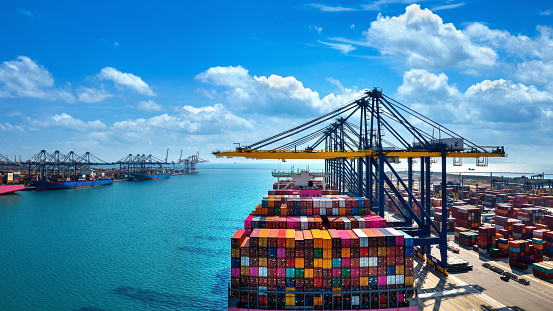This carefully crafted course, led by authorized trainers from Resilience Edge, ensures exceptional learning outcomes and KHDA Certificates from the Dubai Government, requiring a minimum of 10 participants.
This training program focuses on the unique challenges of managing logistics and supply chains in humanitarian response efforts. Participants learn about supply chain coordination, procurement, warehousing, and distribution of humanitarian aid in complex and resource-constrained environments.
Course Description:
The Humanitarian Logistics and Supply Chain Management training program provides participants with an in-depth understanding of the unique challenges involved in managing logistics and supply chains in humanitarian response efforts. This course equips participants with the knowledge and skills required to effectively coordinate the supply chain, procure essential resources, manage warehouses, and distribute humanitarian aid in complex and resource-constrained environments. Through a combination of theoretical instruction, case studies, interactive exercises, and practical simulations, participants will gain practical insights into the intricacies of humanitarian logistics. This training program is designed to enhance participants’ abilities to contribute to efficient and effective humanitarian response operations.
Course Objectives:
1. Understand the principles and concepts of humanitarian logistics and supply chain management.
2. Gain knowledge of the unique challenges and constraints faced in humanitarian response efforts.
3. Develop skills in supply chain coordination and management in resource-constrained environments.
4. Acquire techniques for efficient procurement and sourcing of humanitarian aid.
5. Learn best practices in warehouse management and inventory control in humanitarian settings.
6. Apply humanitarian logistics principles through realistic simulations and case studies.
Course Learning Outcomes:
By the end of the course, participants will be able to:
1. Demonstrate a comprehensive understanding of humanitarian logistics and supply chain management principles.
2. Identify and analyze the challenges and constraints specific to humanitarian response efforts.
3. Coordinate and manage supply chains effectively in resource-constrained environments.
4. Apply procurement strategies and sourcing techniques to secure essential humanitarian aid.
5. Implement best practices in warehouse management and inventory control in humanitarian settings.
6. Apply humanitarian logistics principles and practices in realistic simulation exercises.
Who Should Attend the Course:
This course is suitable for professionals involved in humanitarian aid and response efforts, including but not limited to:
– Humanitarian logistics managers and coordinators
– Supply chain managers and officers
– Procurement officers
– Operations managers in humanitarian organizations
– Field coordinators and logistics staff in disaster response agencies
– Government officials involved in emergency management and response
– Professionals seeking to enhance their knowledge and skills in humanitarian logistics and supply chain management
Course Features
- Lectures 15
- Quiz 0
- Duration 5 days
- Skill level Intermediate
- Language English
- Students 50
- Certificate Yes
- Assessments Self
- 5 Sections
- 15 Lessons
- 5 Days
- Day 13
- Day 23
- Day 33
- Day 43
- Day 53





